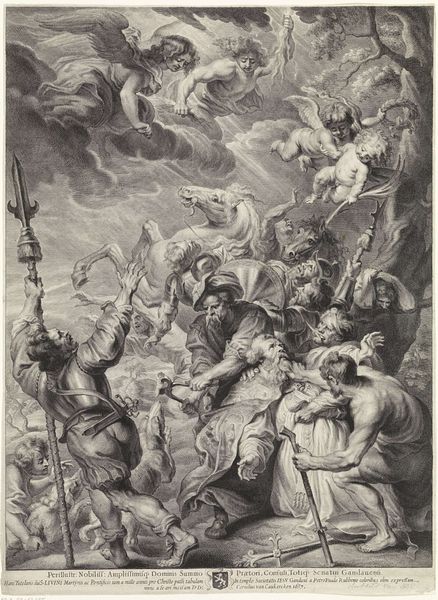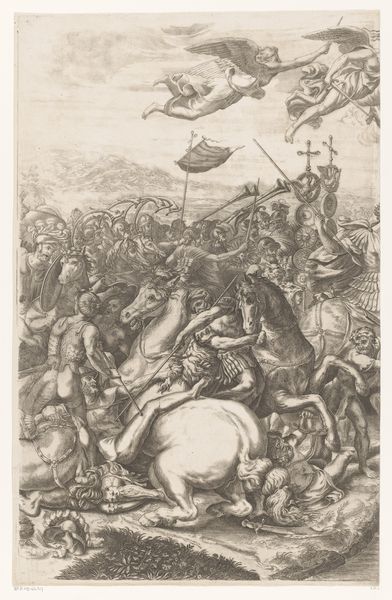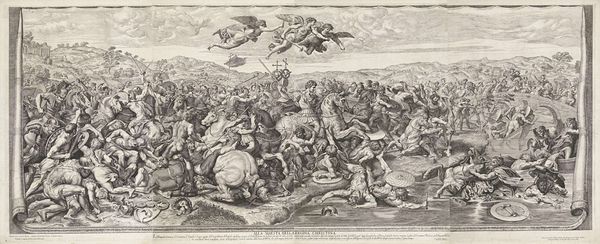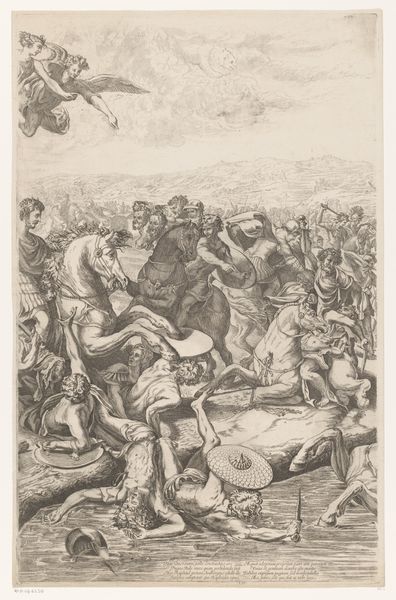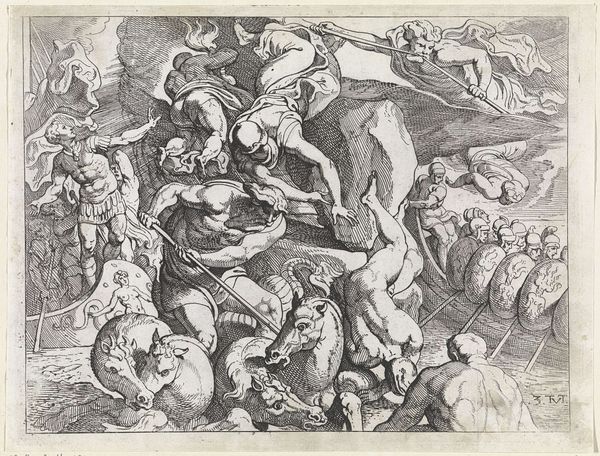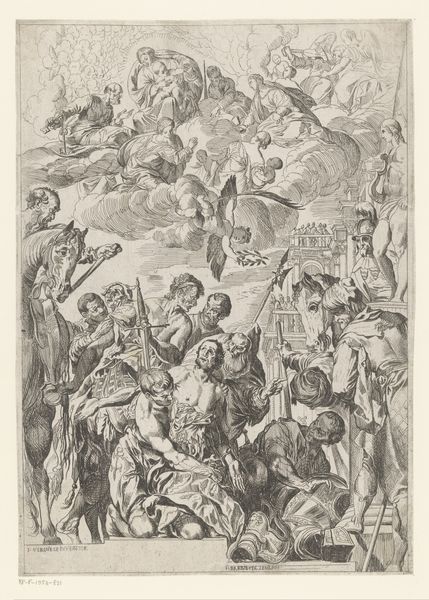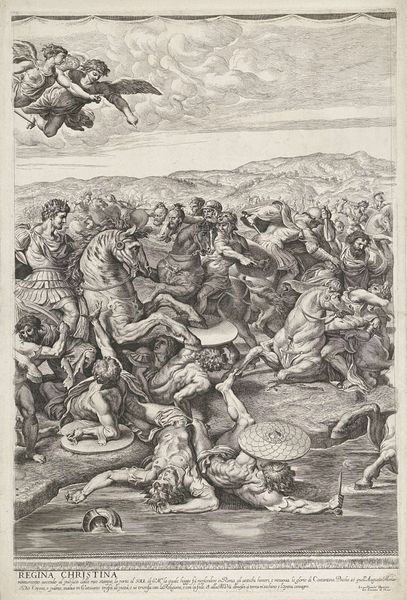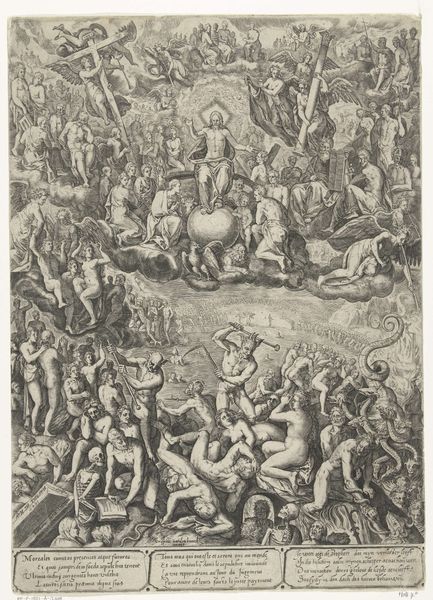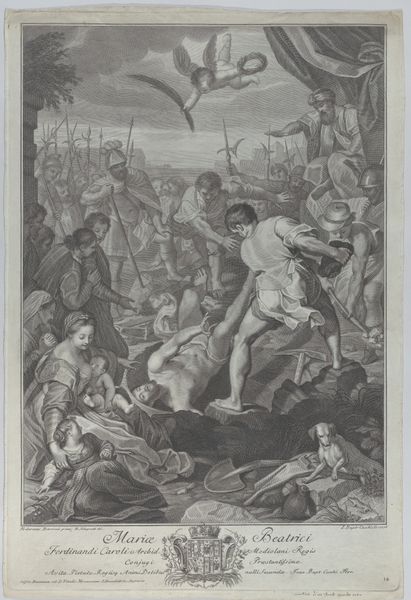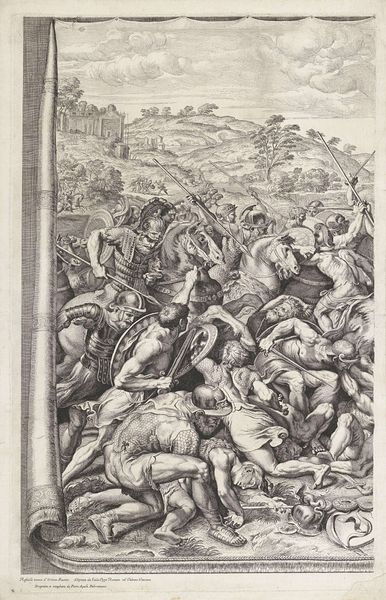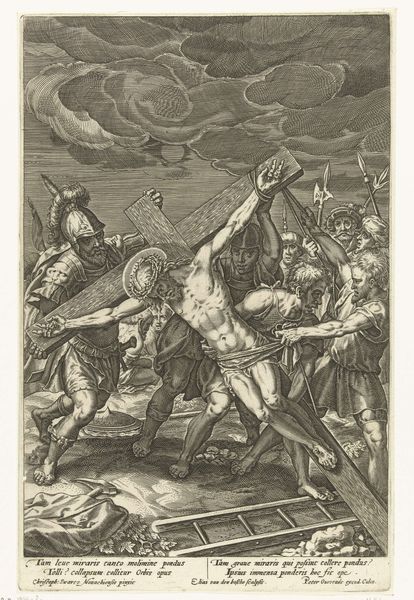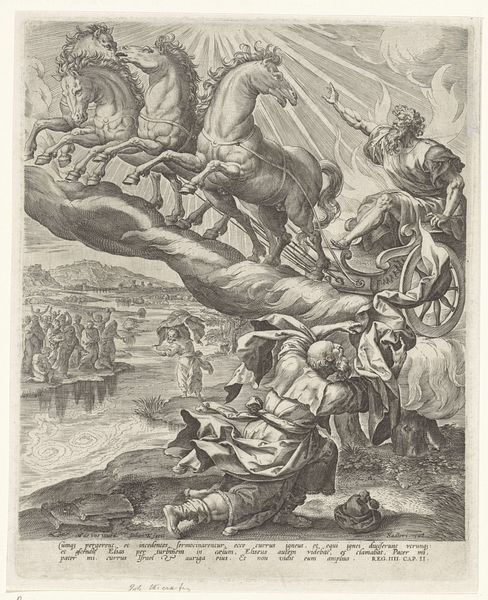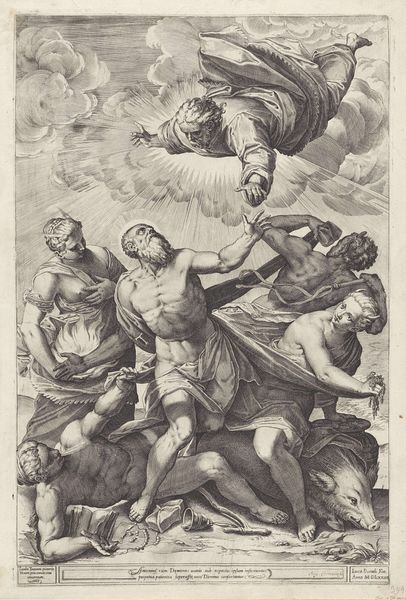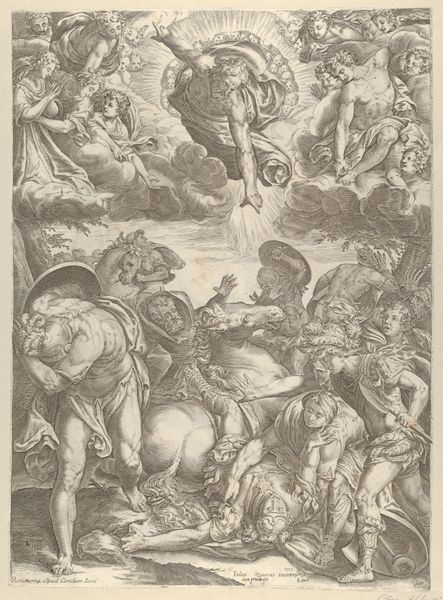
print, engraving
#
baroque
# print
#
old engraving style
#
landscape
#
figuration
#
history-painting
#
engraving
Dimensions: height 684 mm, width 420 mm
Copyright: Rijks Museum: Open Domain
This print of the Battle of the Milvian Bridge was made around 1700 by Pietro Aquila using etching and engraving. These are both printmaking techniques that allow for detailed and reproducible images. To make an etching, a metal plate, often copper, is coated with a waxy, acid-resistant substance called a ground. The artist then draws through the ground with a sharp needle, exposing the metal. The plate is then immersed in acid, which bites into the exposed lines, creating grooves. Engraving, on the other hand, involves directly cutting lines into the metal plate with a tool called a burin. Both of these are highly skilled crafts, demanding precision and control. The dense network of lines and the subtle tonal variations show the amount of work that has gone into this piece. This print would have been made to satisfy a growing market for images. By understanding the labor and skill embedded in this image, we can appreciate the ingenuity of early modern printmaking as a craft, as well as its social context.
Comments
No comments
Be the first to comment and join the conversation on the ultimate creative platform.
